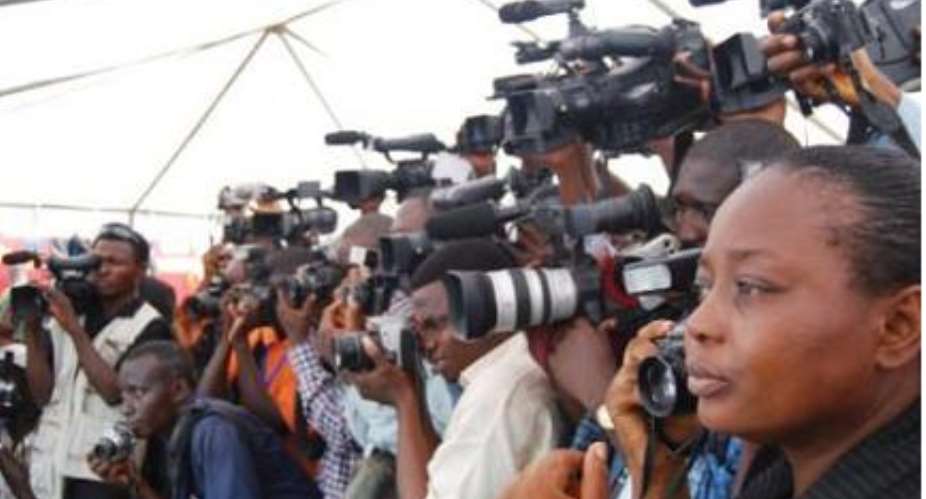According to the United Nations Plan of Action on the Safety of Journalists and the Issue of Impunity (2012) every five days a journalist is killed for bringing information to the public and less than one out of ten cases of killed journalists are considered resolved, perpetuating the cycle of violence against journalists.
Special Rapporteur Annual Report (August, 2010) Office of the High Commissioner for Human Rights (OHCHR) defines journalists in light of the right to freedom of expression as “individuals who are dedicated to investigating, analysing and disseminating information, in a regular and specialised manner, through any type of written media, broadcast media, (television or radio) or electronic media. The definition further added: “With the advent of new forms of communication, journalism has extended into new areas, including citizen journalism.”
In the course of investigating, analysing and disseminating information journalists perform critical roles: defending human rights, exerting pressures on government to fulfill their human rights obligation, raising human rights awareness among the public and exposing many human rights violations – thus making them vulnerable to various forms of attacks.
Journalists’ safety is critical – because it’s a prerequisite for preserving the fundamental right to freedom of expression for all – the right to seek, receive and impart information – with information being the lifeblood of an inclusive and democratic society; without it, no knowledgeable decision can be made in the face of challenges that confront society.
“Safety Of Journalists Research Pack” a Centre of Governance and Human Rights (CGHR), University of Cambridge research identifies three main forms of violence against all journalists: psychological harm, physical harm, and death (including murder). These could be in the form of death threats, sexual harassment, and destruction of journalists’ equipment.
Sadly, these attacks are perpetrated by security agencies, presidential staffers and members of political parties as stated in the Media Foundation for West Africa report (2005 - 2014): “The State of Journalists’ Safety in Ghana”. It states: “leading perpetrators of media violations have been state actors mainly state security agencies – the police and the military. State officials and political party activists are also among the frequent perpetrators of media violations. In almost all cases, perpetrators have committed their acts of violations with impunity”.
Examples abound in this regard: in October, 2009, James Donkor, a radio broadcast journalist who worked with Radio Progress then, was assaulted and detained at the police cells because he questioned an act of police brutality on a young man; in the heat of the aftermath of the 2012 elections, members of the New Patriotic Party attacked journalists of Multi Media; and, Stan Dogbey a presidential staffer in the previous National Democratic Congress government attacked a journalist destroying the reporter’s equipment.
Consequently, these attacks and impunity with which it’s perpetrated, shows that governments and authorities around the world and in Ghana are depriving the public a fundamental human rights guaranteed by the Universal Declaration on Human Rights and the 1992 Fourth Republic Constitution of Ghana. This denial of fundamental human rights occurs since the attacks and the impunity creates a climate of self-censorship. It further hinders independent and investigative journalism, freedom of expression and free flow of information to the public.
It has become a priority since journalists’ safety is an evidence of press freedom which is a critical part of the human rights based approach to development – an approach that makes up the 17 goals and 169 targets of the Sustainable Development Goals (SDGs) launched in 2015.
Again, two examples: recently, journalists in Ghana have embarked on deliberate campaign to bring to an end galamsey – a mining menace that has led to the degradation of land, pollution of water bodies and the depletion of forests; activities of Boko Haram – a pseudo-religious sect that have unleashed pain and destruction in some parts of the West African sub-region – have not escaped the lenses of the media.
In light of the above, nations must take a second look at national security and interest laws that don’t guarantee press freedom, protection and safety of journalists: while World Press Freedom 2017 highlights the protection of journalists, a military court of Paul Biya’s Cameroon has jailed a journalist, Ahmed Abba, sending chills and shivers down the spines of journalists who report in the line of fire.
When journalists are killed, attacked, arrested and detained, in the course of professional duties arbitrarily and with impunity, fundamental human rights and development suffers. End all forms attacks and impunity against journalists now!





 Togo leader Gnassingbe follows father's political playbook
Togo leader Gnassingbe follows father's political playbook
 NDC panics over Bawumia’s visit to Pope Francis
NDC panics over Bawumia’s visit to Pope Francis
 EC blasts Mahama over “false” claims on recruitment of Returning Officers
EC blasts Mahama over “false” claims on recruitment of Returning Officers
 Lands Minister gives ultimatum to Future Global Resources to revamp Prestea/Bogo...
Lands Minister gives ultimatum to Future Global Resources to revamp Prestea/Bogo...
 Wa Naa appeals to Akufo-Addo to audit state lands in Wa
Wa Naa appeals to Akufo-Addo to audit state lands in Wa
 Prof Opoku-Agyemang misunderstood Bawumia’s ‘driver mate’ analogy – Miracles Abo...
Prof Opoku-Agyemang misunderstood Bawumia’s ‘driver mate’ analogy – Miracles Abo...
 EU confident Ghana will not sign Anti-LGBTQI Bill
EU confident Ghana will not sign Anti-LGBTQI Bill
 Suspend implementation of Planting for Food and Jobs for 2024 - Stakeholders
Suspend implementation of Planting for Food and Jobs for 2024 - Stakeholders
 Tema West Municipal Assembly gets Ghana's First Female Aircraft Marshaller as ne...
Tema West Municipal Assembly gets Ghana's First Female Aircraft Marshaller as ne...
 Dumsor is affecting us double, release timetable – Disability Federation to ECG
Dumsor is affecting us double, release timetable – Disability Federation to ECG
